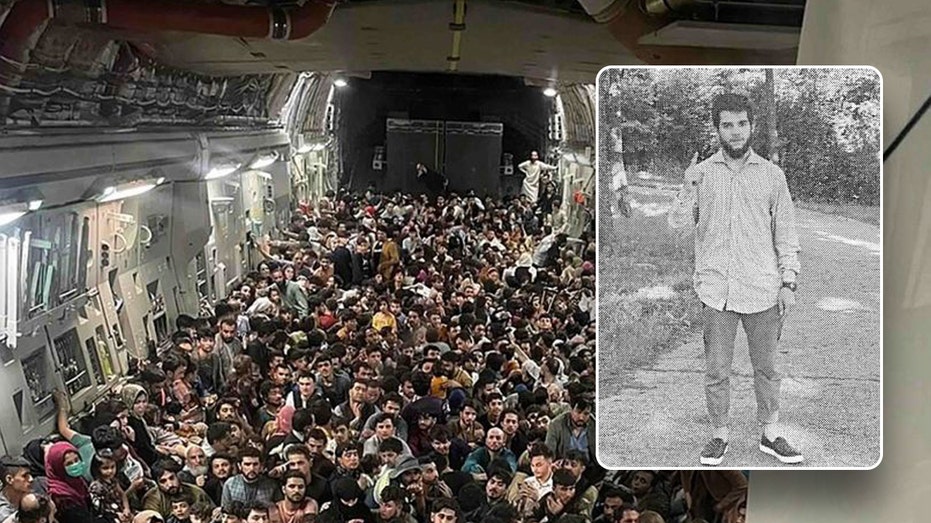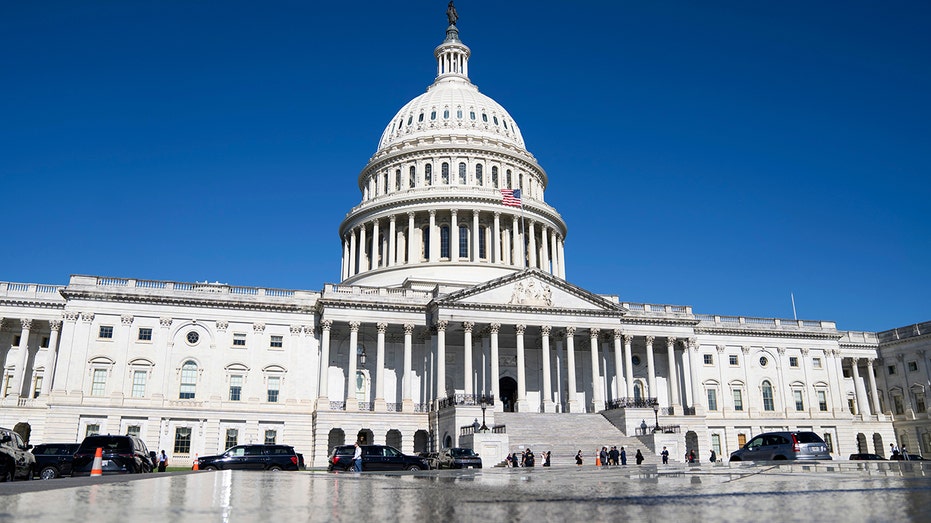The arrest of an Afghan national now accused of plotting an Election Day terror attack on behalf of ISIS, and who entered the United States shortly after the chaotic withdrawal from Afghanistan, is reigniting long-standing questions and concerns from Republicans about the vetting of those who came to the U.S. at that time.
Nasir Ahmad Tawhedi is said to have obtained firearms and ammunition to conduct a violent attack on U.S. soil and took steps to prepare for the plot. Tawhedi, who was arrested on Monday, is charged with conspiring and attempting to provide material support to ISIS and receiving a firearm to be used to commit a felony or a federal crime of terrorism. Authorities say he liquidated his family’s assets to finance his plan, including purchasing rifles and one-way tickets for his wife and child back to Afghanistan.
“This defendant, motivated by ISIS, allegedly conspired to commit a violent attack, on election day, here on our homeland,” said FBI Director Christopher Wray in a statement. “I am proud of the men and women of the FBI who uncovered and stopped the plot before anyone was harmed. Terrorism is still the FBI’s number one priority, and we will use every resource to protect the American people.”
AFGHAN MAN IN OKLAHOMA PLOTTED ELECTION DAY TERROR ATTACK IN US ON BEHALF OF ISIS, JUSTICE DEPT SAYS
Authorities said Tawhedi entered the United States on Sept. 9, 2021, on a Special Immigrant Visa and is currently on parole status pending adjudication of his immigration proceedings. His alleged co-conspirator is a green card holder who arrived in the U.S. on a Special Immigrant Visa in 2018.
Special Immigrant Visas (SIV), made available first during the Bush administration, allowed those who worked with the U.S. armed forces as a translator or interpreter in Afghanistan or Iraq to obtain a visa. The number of SIV applicants increased sharply amid the 2021 withdrawal.
But Tawhedi entered shortly after the withdrawal from Afghanistan, a time that saw planes full of Afghans being quickly evacuated from Kabul’s airport and tens of thousands of Afghans brought to the U.S. The U.S. would go on to admit more than 97,000 evacuees, of which about 77,000 were admitted via humanitarian parole, through a program called Operation Allies Welcome.
It is unclear how Tawhedi entered the U.S. and also why he would have moved from a SIV to a parole status. But Republicans and watchdog officials have long expressed concern about the vetting of those who came in during that period. Those concerns have been renewed in the case of Tawhedi.
“When tens of thousands of insufficiently vetted individuals are let into the interior, this is the inevitable result,” House Homeland Security Committee Chair Mark Green, R-Tenn., said in a statement. “This Committee has repeatedly warned of the terror threats stemming from the Biden-Harris administration’s failed leadership and disastrous border security policies.
DHS OIG FAULTS AFGHAN VETTING, WARNS NATIONAL SECURITY THREATS MAY HAVE ENTERED US
“Unfortunately, our calls for transparency regarding the inadequate vetting and screening following the catastrophic withdrawal from Afghanistan continue to go unanswered – and, here, Americans almost paid the price,” he said.
In the Senate, Sen. Chuck Grassley, R-Iowa, said he had been vocal about the need to thoroughly vet SIV applicants but that the Biden administration had been “quick to dismiss those glaring alarms.”
“The number one job of our government is to protect its citizens. By hiding behind clerical excuses, refusing to take accountability and neglecting to address known vulnerabilities in vetting and resettlement processes, the Biden-Harris administration failed to prioritize Americans’ safety and, once again, projected weakness on the global stage,” Grassley said in a statement.
House Republican Conference Chair Elise Stefanik of New York also blamed the administration.
“Nasir Ahmad Tawhedi was flown into the U.S. by Joe Biden and Kamala Harris. Their catastrophic America Last foreign policy has made America less safe,” she said in a statement.
Concerns about vetting have been voiced by the Department of Homeland Security’s (DHS) internal watchdog. In 2022, the DHS Office of Inspector General released a report in which it said it found that officials “did not always have critical data to properly screen, vet, or inspect the evacuees.”
DHS ANNOUNCES TERROR BAR EXEMPTIONS FOR AFGHAN EVACUEES WHO WORKED FOR TALIBAN-ERA CIVIL SERVICE
“As a result, DHS may have admitted or paroled individuals into the United States who pose a risk to national security and the safety of local communities,” the report said.
A Pentagon inspector general report the same year revealed that at least 50 evacuees were brought to the U.S. whose information indicated “potentially serious security concerns” and that officials were unable to locate dozens with derogatory information.
A 2024 report found “vulnerabilities” in the processes of two DHS agencies for resolving derogatory information. It also found that DHS did not have a process for monitoring the expiration of the two-year parole period and guidelines for determining “re-parole” for parolees are “undefined.”
But the Biden administration has repeatedly defended the vetting process, arguing that there is a multilayered process that includes classified and unclassified vetting, including against Pentagon and FBI databases as well as Interpol notices and other information. It previously pushed back against the 2022 IG report, saying it failed to acknowledge an “unprecedented whole of government effort” and for seeing only one part of the screening process.
“Afghan evacuees who sought to enter the United States were subject to multi layered screening and vetting against intelligence, law enforcement, and counterterrorism information,” a DHS spokesperson said on Wednesday. “If new information emerges after arrival, appropriate action is taken.”
Officials have noted that vetting is a “point-in-time” check of current information. It is still not clear if there was any derogatory information on Tawhedi before he arrived.
The arrest comes among broader concerns about the potential for terrorism in the U.S. by foreign nationals. Fox News Digital reported on Tuesday that authorities have started deporting eight Tajik nationals who came to the U.S. at the southern border and were released but later found to allegedly have ties to ISIS.
Fox News’ Louis Casiano and David Spunt, and the Associated Press contributed to this report.
Latest Political News on Fox News Read More




